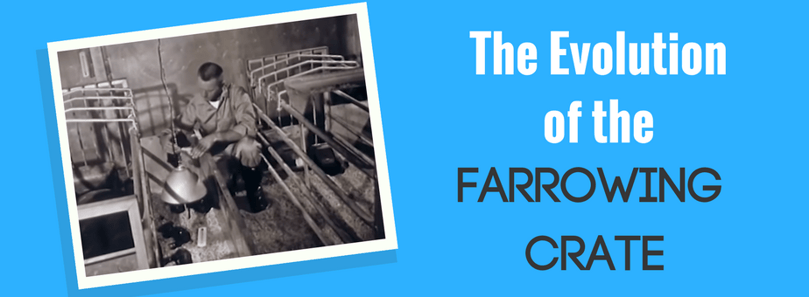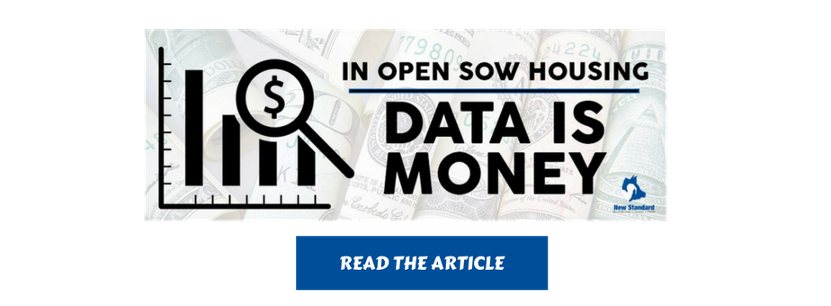
Farrowing crates have been around a long time, and pigs have been around longer. Check out our newest blog to see how they have evolved!
Way Back When
Pigs have been around forever. In fact, scientists have found fossils that indicate pigs could have been roaming the earth 40 million years ago! Pigs were domesticated in China around 4900 B.C., and around 1500 B.C. in Europe, but what we know today as the farrowing crate didn't get its start until hundreds of years later.
The earliest known example comes from the UK in 1807 with "Mr. Pattinson's Pig Cases" (shown below). The top portion of the picture—an antiquated equivalent to today's farrowing barns—along with the gestation-pen-like bottom sketch below was the first way technology was used to produce happier, healthier piglets, just as we try to do today as technology continues to advance.
The Good 'Ol Days
Did you know that the farrowing crate was actually developed before gestation crates were? Well it's true! By the end of the 1960s, farrowing crates were extremely common on hog farms across the United States and Europe. This was the humble start to much of the advanced technology we use today.
Even as early as the 1960s, there were producers interested in staying up on the latest technology. Just check out this video from 1961.
Quite a different scenario from the farrowing barns of today!
Today
Following the same general concept, farrowing crates have continued to become more and more in tune to the needs of the sows and piglets. Many modern crates are designed to keep the sows at cooler temperatures than their piglets, as well as keep the piglets dry to avoid the spread of disease. Many modern barns are even equipped with advanced, adjustable anti-crush bars so that the sow has more room to move freely, all without without endangering her piglets.
ESF technology is also available in farrowing barns and can be a great addition to maximize your sows' recovery times. Research has shown that sows who are well fed during lactation go into estrus more quickly and release more eggs when they are in heat. Nedap Farrowing Feeding Systems, shown below, feed sows their rations over multiple meals each day, allowing them to get maximum feed intake for their exact condition and stage of lactation.
Did you enjoy learning about the history of farrowing barns? We've all heard the expression "those who don't learn from history are doomed to repeat it," and we agree. Data is money, and we want to show you the data you need to help you build a profitable business in hog production.





